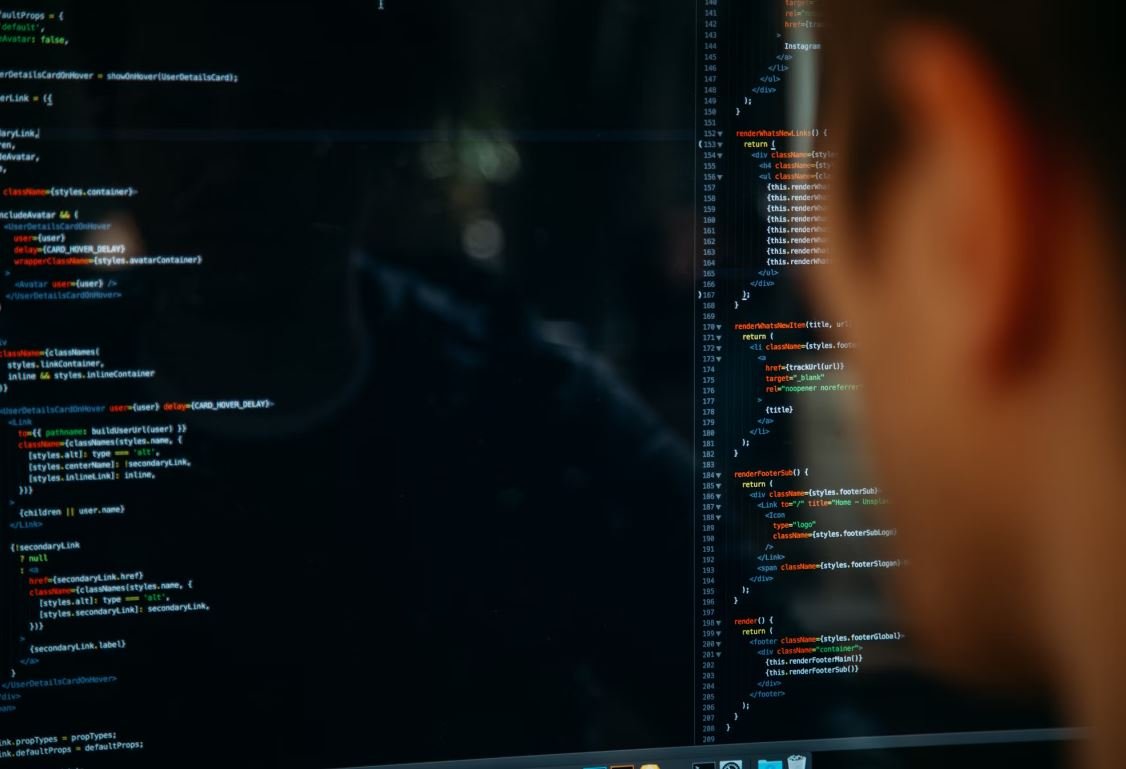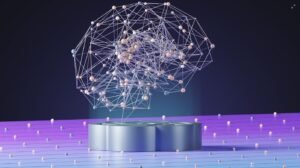AI and Automation Impact on Jobs
Advancements in technology, particularly in the field of artificial intelligence (AI) and automation, have significantly impacted various industries and the overall job market. As automation systems become more sophisticated and AI algorithms continue to improve, the way we work is changing rapidly. While there are positive aspects to these developments, such as increased efficiency and productivity, they also raise concerns about job displacement and future employability.
Key Takeaways
- Advancements in AI and automation have transformed industries and the job market.
- Increased efficiency and productivity are notable benefits of AI and automation.
- Concerns about job displacement and future employability arise with these advancements.
Impact on Job Market
The introduction of AI and automation has altered the job market landscape in various ways. Repetitive and mundane tasks that were once performed by humans are now being automated, reducing the need for manual labor in certain industries. Jobs that involve predictable, rule-based activities, such as data entry and assembly line work, are most at risk of being replaced by machines. However, it’s important to note that while some jobs may become obsolete, new job roles and industries will emerge to address the changing needs of the market.
- The job market is undergoing significant transformations with the introduction of AI and automation.
- Repetitive and predictable tasks are most likely to be automated.
- New job roles and industries will emerge to adapt to the changing market dynamics.
Effects on Different Industries
The impact of AI and automation varies across different industries. Highly structured industries, such as manufacturing and logistics, have witnessed a substantial increase in automation, resulting in decreased labor requirements. On the other hand, sectors requiring complex decision-making and creativity, like healthcare and finance, have seen the integration of AI to enhance efficiency and accuracy without replacing human workers.
*The healthcare industry, for instance, has seen the implementation of AI-powered diagnostic systems that can accurately analyze medical images and assist healthcare professionals in making informed decisions.
- Manufacturing and logistics industries have experienced a significant shift towards automation.
- Complex decision-making industries integrate AI to enhance efficiency and accuracy.
Challenges and Opportunities
While the prospect of increased automation may be daunting for some, it also presents new opportunities. With repetitive tasks being automated, employees can focus on more complex and creative aspects of their jobs. Additionally, the demand for individuals skilled in managing and developing AI technologies is rising. This highlights the importance of reskilling and upskilling the workforce to adapt to the evolving job market.
- Automation creates new opportunities focused on complex and creative tasks.
- The demand for skilled professionals in AI development and management is increasing.
- Reskilling and upskilling are crucial for individuals to remain relevant in the changing job market.
| Industry | Level of Automation |
|---|---|
| Manufacturing | High |
| Transportation | Medium |
| Retail | Low |
| Field | Skills |
|---|---|
| Data Science | Machine Learning, Data Analysis |
| Software Engineering | Artificial Intelligence, Software Development |
| Robotics | Robotics Engineering, Automation Design |
| Occupation | Growth Rate (%) |
|---|---|
| Software Developer | 22 |
| Data Scientist | 15 |
| Robotics Engineer | 9 |
Preparing for the Future
In order to navigate the evolving job market influenced by AI and automation, individuals and organizations need to proactively adapt. Continuous learning and skills development are essential for staying relevant in a technology-driven world. Embracing new technologies and fostering a culture of innovation can ensure a smoother transition into the future of work.
- Continuous learning and skills development are crucial for future employability.
- Embracing new technologies and fostering innovation prepares individuals and organizations for the future of work.

Common Misconceptions
AI and Automation Impact on Jobs
There are several common misconceptions surrounding the impact of artificial intelligence (AI) and automation on jobs. Firstly, many people believe that AI and automation will lead to widespread job loss and unemployment. However, the reality is that while certain jobs may become obsolete, new roles and opportunities will emerge as a result. It is important to understand that AI and automation are designed to augment human capabilities, not replace them entirely.
- New roles will be created that focus on managing and maintaining AI and automation systems.
- Workers will have the opportunity to transition into more complex and strategic positions that require human intuition and creativity.
- AI and automation can result in increased productivity and efficiency, leading to economic growth and the creation of new jobs.
Secondly, some people fear that AI and automation will only benefit large corporations and leave small businesses and individuals behind. However, AI and automation technologies are becoming more accessible and affordable, allowing small businesses and individuals to leverage their benefits as well. For example, automation tools like chatbots can help small businesses provide better customer service without the need for significant human resources.
- Small businesses can use AI-powered analytics tools to gain insights and make data-driven decisions.
- AI and automation can improve the efficiency of small business operations, reducing costs and increasing competitiveness.
- Individuals can leverage AI-based platforms and services to enhance their personal productivity and skills.
Thirdly, there is a misconception that AI and automation will only impact low-skilled workers. However, AI and automation technologies have the potential to transform various industries, including high-skilled professions. While automation may replace certain repetitive tasks within these professions, it also opens up opportunities for professionals to focus on more complex and strategic aspects of their work.
- AI can assist doctors in diagnosing diseases more accurately and efficiently, improving overall healthcare.
- Automation can handle routine legal document review, allowing lawyers to spend more time on complex legal analysis and counseling.
- Engineers can leverage AI algorithms to optimize and automate design processes, enabling them to work on innovative solutions.
In summary, the impact of AI and automation on jobs is often misunderstood. Rather than causing widespread job loss, these technologies offer opportunities for individuals and businesses alike. By dispelling these common misconceptions, we can better embrace the potential of AI and automation to enhance our work and lives.
- AI and automation can lead to the creation of new roles and job opportunities.
- Small businesses and individuals can also benefit from AI and automation technologies.
- High-skilled professions can be transformed and enhanced by AI and automation.

The Rise of AI and Automation in the Workplace
The advancements in artificial intelligence (AI) and automation technologies have revolutionized numerous industries, greatly impacting job markets around the world. This article explores the profound effects of AI and automation on different sectors, shedding light on the changes and challenges they bring.
Job Losses Due to Automation
Automation has undoubtedly transformed the employment landscape, resulting in significant job displacements. In the United States alone, studies indicate that around 6 million jobs have been lost to automation since 2000.
Jobs at High Risk of Automation
Several professions face high levels of risk of being automated due to the nature of their tasks. For instance, telemarketers, data entry clerks, and assembly line workers are among the most vulnerable occupations, posing an uncertain future for those involved.
Skills in Demand in the Age of Automation
As automation takes over certain tasks, new opportunities arise, demanding a different skill set. Expertise in fields such as machine learning, robotics, and data analysis is increasingly sought after, spurring the need for individuals to adapt and upskill.
Increased Productivity and Efficiency
While concerns surrounding job displacement persist, AI and automation technologies have undeniably increased productivity in many industries. By streamlining processes, eliminating repetitive tasks, and enhancing accuracy, these technologies contribute to higher efficiency and output.
Automation’s Effect on Income Inequality
Automation has had a profound impact on income inequality, affecting both the lower and middle-income workers. The decreased demand for certain roles can lead to lower wages for displaced workers, exacerbating the income gap in society.
Nonetheless, the Need for Human Skills Persists
Despite the rise of AI and automation, certain capabilities remain irreplaceable. Professions demanding creativity, emotional intelligence, complex problem-solving, and interpersonal skills will continue to thrive, highlighting the vital significance of human capabilities in the constantly evolving job market.
Automation’s Contribution to Economic Growth
The integration of automation technologies has shown a positive correlation with economic growth. A study by the McKinsey Global Institute estimates that automation could potentially increase global productivity growth between 0.8% and 1.4% annually.
The Benefits of Partial Automation
It is worth noting the significance of partial automation, where machines and humans collaborate on tasks. This approach allows for the utilization of each entity’s strengths, harnessing human creativity and problem-solving alongside the speed and precision of machines, leading to optimized outcomes.
The Future of Work
As AI and automation continue to advance, the future of work presents a unique blend of opportunities and challenges. While certain jobs may become obsolete, new roles and fields will emerge, demanding individuals to adapt, acquire new skills, and embrace the evolving digital landscape.
In conclusion, the impact of AI and automation on jobs is undeniable. With job displacements, shifts in required skill sets, and changes in income inequality, it is crucial for individuals and industries to harness the potential of these technologies while also focusing on the development of uniquely human attributes that are irreplaceable.
Frequently Asked Questions
AI and Automation Impact on Jobs
- How will AI and automation impact job availability?
- AI and automation will likely lead to the automation of certain tasks and job roles, potentially reducing the demand for human workers in those areas. However, it may also create new job opportunities in fields related to AI development, maintenance, and oversight.
- Will AI and automation replace all jobs?
- While AI and automation have the potential to automate various job tasks, it is unlikely that they will replace all jobs completely. Instead, they are likely to augment and transform existing jobs by automating repetitive and mundane tasks, allowing workers to focus on more complex and creative aspects of their roles.
- Which industries will be most affected by AI and automation?
- Industries that heavily rely on routine and repetitive tasks such as manufacturing, transportation, customer service, and data analysis could experience significant impacts from AI and automation. However, there is potential for positive impacts across various sectors as well, including healthcare, finance, and education.
- How will AI and automation impact job quality?
- The impact of AI and automation on job quality can vary. While some jobs may become more efficient and require less manual work, there is a chance that certain job roles may become obsolete. It is important for organizations and policymakers to consider strategies that support reskilling and upskilling efforts to ensure a smooth transition.
- Are there potential risks associated with AI and automation in the job market?
- Yes, there are potential risks to consider. AI and automation could lead to job displacement, particularly for individuals whose tasks can be easily automated. There is also a concern over bias in AI algorithms and its potential impact on equity and fairness in employment opportunities. Adequate regulations and ethical frameworks will be crucial to mitigate these risks.
- How can individuals prepare for the impact of AI and automation on jobs?
- To prepare for the impact of AI and automation, individuals can consider acquiring skills that complement and enhance AI technologies, such as data analysis, problem-solving, and creativity. Continuous learning and adaptability will be vital to remain relevant in an evolving job market.
- What opportunities might arise from AI and automation in the job market?
- AI and automation can create new employment opportunities in areas such as AI programming, algorithm development, data interpretation, and AI ethics. Additionally, as AI systems become more prevalent, there may be a growing demand for workers specializing in AI maintenance, training, and explainability.
- Will AI and automation lead to unemployment?
- While AI and automation may impact certain job roles, their overall effect on unemployment is uncertain. While some jobs may be lost, new job opportunities may also arise as AI and automation create economic growth in innovative industries. The retraining and reskilling of the workforce will play a crucial role in overcoming potential unemployment challenges.
- Can AI and automation improve productivity and efficiency in the workplace?
- Yes, AI and automation can significantly improve productivity and efficiency in the workplace. By automating repetitive tasks, AI frees up time for employees to focus on more strategic and complex activities. AI technologies can also enhance decision-making processes and streamline operations, leading to greater efficiency.
- What role does human oversight play in AI and automation?
- Human oversight is crucial in AI and automation to ensure ethical use and mitigate potential biases. While AI algorithms can make autonomous decisions, humans should be responsible for monitoring and supervising these systems. Additionally, human judgment and creativity are still essential in many areas where machine intelligence may fall short.





